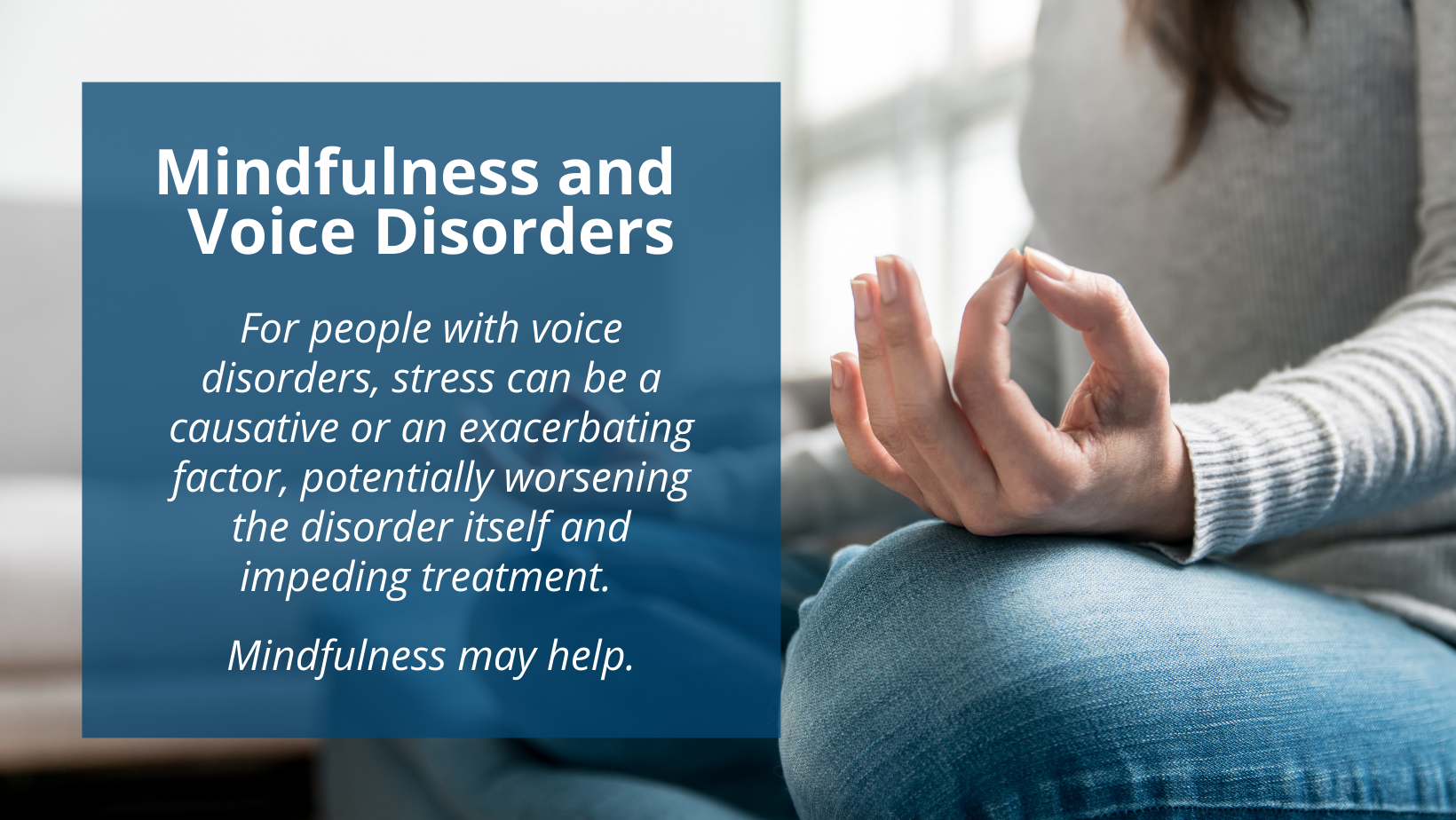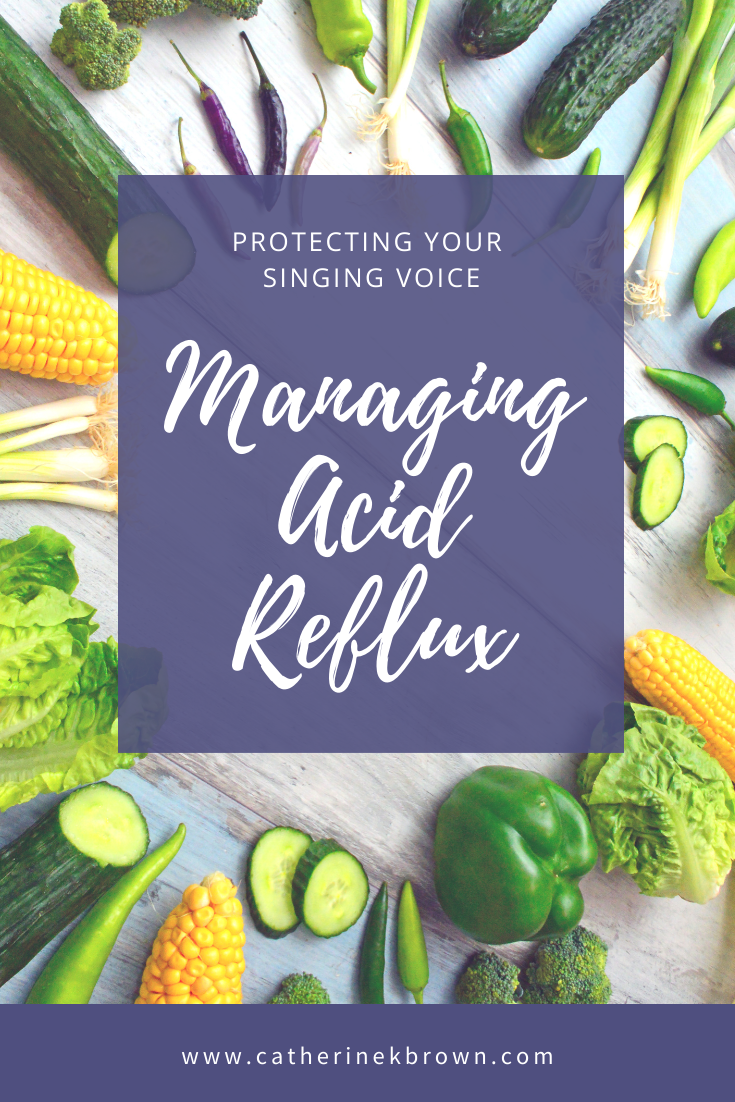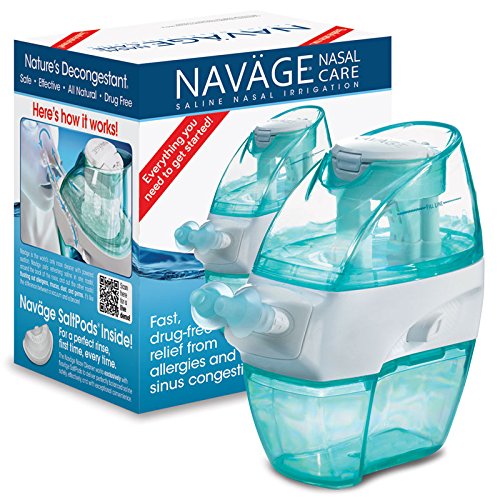For people with voice disorders, stress can be a causative or an exacerbating factor, potentially worsening the disorder itself and impeding treatment. People with voice disorders often experience high stress levels; social and emotional isolation; and loss, including the loss of work opportunities, sense of self, and the ability to communicate. Mindfulness meditation may help.
Article: Effects of an 8-Week Mindfulness Course in People With Voice Disorders
How to Find a Voice Specialist Speech-Language Pathologist
Most speech-language pathologists (SLPs) have very little experience and training in treating voice disorders. As part of their masters degree, SLPs are required to take one course in voice disorders — and that course may focus more on signs and symptoms than on treatment. If you’ve been diagnosed with a voice disorder, it is essential that you see an SLP who is well-versed in voice. But how can you know whether an SLPs has the experience to help you? This post will give you some ideas of what to look for or what questions to ask.
How to Find a Voice Doctor
Most doctors (even ENTs) don’t have the experience it takes to treat singers or anyone with a complex voice disorder. If you’re shopping for a voice-savvy ENT, look for an otolaryngologist who has completed a fellowship in Laryngology and the Care of the Professional Voice. There are just over 20 such fellowship programs in the United States. I recommend looking for a large hospital with a voice center that employs laryngologists and speech-language pathologists who specialize in voice. This blog post includes an extensive list. However, many regions of the country do not have a voice clinic, and you would be well-served by finding any fellowship-trained laryngologist. I recommend visiting the website of the American Laryngological Association, where you can search for members by location. The search feature does not function perfectly, but it provides a place to start.
Benefits of Group Mindfulness for People with Voice Disorders
Did you know that practicing mindfulness in a group has been shown to produce better outcomes than practicing alone? The popular press frequently touts the health benefits of mindfulness, but rarely states that those benefits are almost always gained in group settings. If you've been practicing mindfulness on your own using recordings or an app, consider joining a class instead.
Study: Mindfulness for People with Voice Disorders
Nearly every modern textbook on vocal pedagogy, vocal health, or the causes and treatment of voice disorders recommends stress reduction as both a preventive and therapeutic tool for voice users and patients with voice disorders. We know from extensive research in various populations that Mindfulness Based Interventions (MBIs) can reduce stress. Yet I have been unable to find any studies on the effects of mindfulness in people with voice disorders. I decided to run my own.
Ten Ways to Begin Your Vocal Warm-Up Without Making a Sound
Here are my favorite ways to kick-start a practice session without waking the neighbors.
Eat breakfast - Breakfast is a great way for morning practicers to get started. The actions of chewing and swallowing warm up the face, jaw, and tongue muscles and trigger the salivary glands that moisten the throat.
Take a shower - There’s nothing like warm water to open the sinuses, relax the body and mind, and prep your muscles for action. I recommend showers over baths since showers tend to steam up the bathroom (and hydrate the vocal cords) more quickly.
Drink water - Most singers already know how essential proper hydration is, but just the act of swallowing is beneficial, too.
Drink hot tea - For allergy sufferers like me, tea can help to wash down phlegm and clear the nasal passages. Other hot drinks will also work, but watch out for too much caffeine - it can dry the vocal cords. Besides, tea has additional health benefits (it’s loaded with antioxidants) and half the caffeine (or less) of coffee.
Yawn - Yawning is the ultimate throat and palette stretch!
Stretch - Singing involves the whole body, and unnecessary tension anywhere can have a negative effect on the voice. I find that a good side stretch helps open up the ribcage and free up my breath.
Exercise - Yoga is my favorite because it combines stretching and deep breathing, but you should do whatever form of exercise you enjoy.
Meditate - Mindfulness meditation is the practice of focusing the mind, usually by observing the breath and disengaging from thoughts. It’s a great way to calm anxious nerves and tame self-criticism.
Make faces - Like yawning, making funny faces is a great stretch for the face and jaw, as well as a wonderful way to practice improvisation.
Practice in your head - Studies have shown that mental practice can be as effective as an actual practice session. So go ahead …
Give yourself a head start on your warm-up without making a sound.
Protecting Your Singing Voice: Managing Acid Reflux
Acid reflux, especially the form known as laryngopharyngeal reflux, can wreak havoc on the delicate vocal cords.
There are several things we know about laryngopharyngeal reflux:
It’s on the rise, perhaps due to stress, diet, or some combination of the two.
It can burn the vocal cords. Not all reflux reaches the level of the larynx, but LPR does and can cause sore throat, hoarseness, and chronic cough.
You may never feel it. Just because you don’t have pain after eating doesn’t mean you don’t have LPR. Some reflux is “silent,“ meaning that it doesn’t cause uncomfortable heartburn.
It can lead to severe vocal impairment. The inflammation caused by LPR can cause the vocal cords to swell, giving the speaking voice a raspy quality and lowering the pitch. Singers may experience vocal fatigue and loss of range. Some laryngologist believe that LPR also puts patients at greater risk for nodules, polyps, and other vocal cord disorders.
How LPR is diagnosed:
An otolaryngologist can diagnose LPR by viewing the vocal cords via laryngoscopy. Additional tests (such as a 24-hour pH test) can confirm the diagnosis, if needed.
How LPR is treated:
The standard medical treatment for LPR is:
a proton pump inhibitor (PPI), like Protonix (available by prescription) or Prilosec (available over the counter), taken in the morning
antacids (like Tums, Gaviscon) taken after meals
an H2 antagonist, like Pepcid (available over the counter), taken in the evening
However, lifestyle changes, which can be equally important, include:
Finishing any meals or snacks 3-4 hours before bedtime
Avoiding trigger foods (spicy foods, tomato sauces, peppermint, high fat or fried foods, sugar, and - for some people - gluten)
Avoiding alcohol, tobacco, caffeine, and carbonated beverages (including seltzer)
Raising the head of the bed 6-8 inches (There are many ways to do this. I use a full length wedge pillow.)
Avoiding clothing that restricts the waist
Reducing stress (mindfulness meditation can help)
Recommended reading:
It can be quite daunting to switch to a reflux-friendly diet. My doctor, a leading laryngologist based in Philadelphia, recommends the books of Dr. Jamie Koufman. In her books, Dr. Koufman explains how modern diets contribute to LPR and what we can eat to help us heal. She emphasizes that reflux triggers often vary between individuals, and her tells patients how to discover and avoid their triggers. Both books include recipes. (I own the book that includes gluten-free recipes, as gluten is one of my triggers.)
A word of caution:
When you tell people (including Dr. Google) that you have acid reflux, you will receive a lot of advice about how to treat it. (For example, apple cider vinegar is commonly mentioned as an all-natural remedy.) I strongly recommend that you ignore well-meaning but uninformed anecdotal advice and seek out evidence-based treatment from medical doctors. This is especially important with silent reflux in singers. It is easy to assume that the reflux has gone away and that any vocal problems are due to some other cause. Please do not make assumptions about your vocal health. The best person to give you medical advice on your voice is a fellowship-trained laryngologist. (Read my post on how to find a voice doctor.)
Where to find more information:
Stanford Medicine’s Voice & Swallowing Center has a concise description of LPR and its treatment.
Dr. Koufman’s blog includes helpful, up-to-date information about reflux and diet
Disclaimer: This blog post does not constitute medical advice, professional diagnosis, opinion, treatment, or services. It simply provides general information for educational purposes only. This information is not a substitute for medical or professional care, and you should not consider it a substitute for a consultation with a physician or other healthcare provider.
A Guide for Singers: Managing Postnasal Drip
Postnasal drip can be a singer’s nightmare. Whether it’s caused by allergies or a bad cold, it can leave the vocal cords swollen, which can limit your range and make your voice more prone to injury. Find out what you can do at home to combat postnasal drip and when you should consider seeing a doctor.
Use a nasal rinse
Many singers use neti pots, but I have several options that I like even better.
The Navage Nasal Care Saline Nasal Irrigation kit cleans out the nasal passages by loosening and removing debris, allergens, and mucus. However, unlike a neti pot, this small handheld machine uses suction to clean out the nasal passages.
If you hate the feeling of salt water up your nose, you'll want to trade in your neti pot! This devine does the job better and gets it done more quickly!
Also, the suction is especially helpful to those with smaller nasal passages or those who are prone to recurring sinus infections.
The NeilMed Sinus Rinse kit comes with squeeze bottle and small packets of salt. You dissolve the salt in warm distilled water, squirt it up one nostril, and it flows out the other. Repeat on the opposite side.
The bottle gently squirts a stream of solution into the nostril allowing it to pass through quickly. It is more efficient than a neti pot, but not quite as advanced as the Navage.
Use a nasal spray
Your physician may recommend a steroid nasal spray (Nasonex, prescription only) or (Flonase or Nasacort, both over the counter). Steroid sprays work by reducing inflammation in the nose. They are safe for the vocal cords, as they are non-drying.
If you'd prefer a natural alternative, try Simply Saline. It will help thin out nasal mucus, although it will not flush out the nasal passages as well as a saline nasal rinse can. However, it is a good alternative for people who strongly dislike nasal rinses.
Avoid antihistamines
Antihistamines are generally considered a first line treatment for allergies, and they are used in many allergy pills and nasal sprays. (In sprays, they are sometimes combined with corticosteroids.) However, antihistamines are drying and can therefore pose problem for singers. (Dry vocal cords are particularly prone to injury.) For that reason, singers may be better off using steroid sprays or getting immunotherapy (allergy shots or sublingual drops).
Seek treatment
If you are having vocal trouble and you think you may have allergies, seek advice from an ENT who can examine your vocal cords and see how allergies may be affecting them. (See my post on finding a voice doctor.)
Please do not assume that allergies will resolve on their own, and do not attempt to sing through them if they affect the quality of your sound. It may simply not be possible for you to improve your voice until your allergies are under control. If your vocal cords are swollen, you may end up straining to produce sound. These bad habits can be difficult to correct even after your voice is healthy. So get your allergies treated before bad habits set in!
If you think postnasal drip is negatively affecting your speaking voice, considering signing up for my online course Strengthening Your Speaking Voice.
Disclaimer: This blog post does not constitute medical advice, professional diagnosis, opinion, treatment, or services. It simply provides general information for educational purposes only. This information is not a substitute for medical or professional care, and you should not consider it a substitute for a consultation with a physician or other healthcare provider.
























